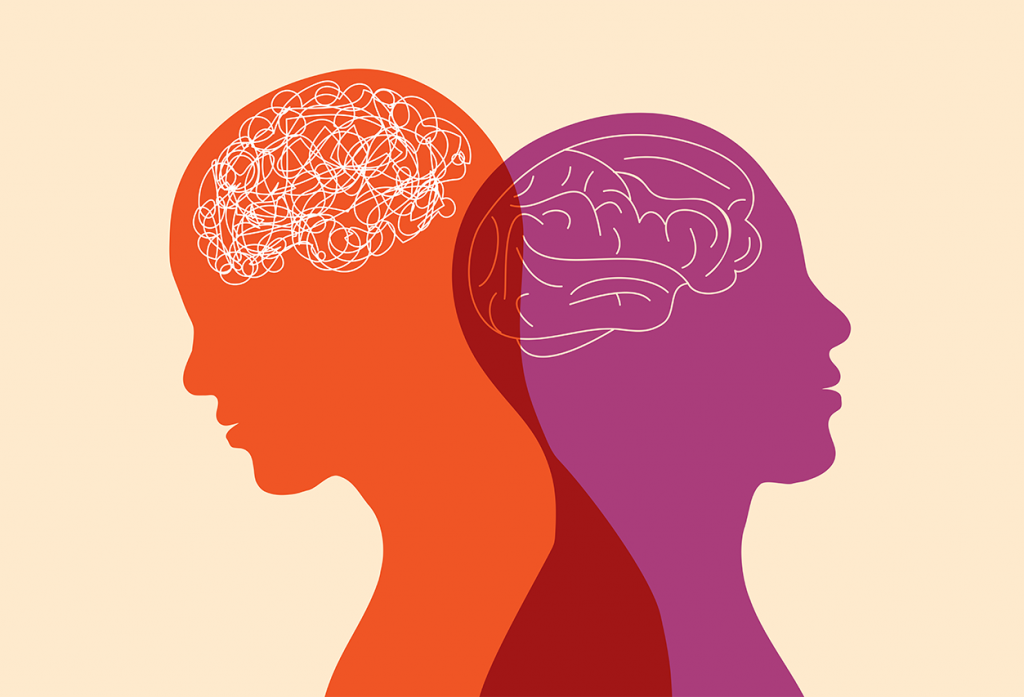Comprehensive Guide to Inpatient Mental Health Services Programs
Comprehensive Guide to Inpatient Mental Health Services Programs
Blog Article
Comprehensive Inpatient Mental Health Solutions for Effective Therapy
Inpatient psychological health services represent a vital element of the medical care system, offering a structured and extensive setting for people experiencing extreme psychological distress. Discovering the subtleties of this continuum exposes significant ramifications for both specific healing and broader psychological health and wellness results.
Understanding Inpatient Mental Health Providers
Inpatient psychological wellness services supply important support for individuals experiencing extreme psychological distress that can not be managed properly in an outpatient setup. These services are developed to offer an extensive level of treatment in an organized environment, often within a hospital or specialized center. Clients confessed to inpatient programs normally display intense signs, such as self-destructive ideation, severe anxiety, or psychosis, necessitating continuous monitoring and treatment.
The admission process normally involves a thorough evaluation by psychological health specialists, who examine the individual's frame of mind, background, and immediate demands. Once admitted, people participate in a range of therapeutic techniques customized to their particular demands, consisting of medication administration, specific therapy, and team sessions. This all natural method intends to maintain the patient's condition, advertise safety and security, and foster coping skills.
Inpatient mental wellness solutions not only address instant health and wellness problems but likewise work as a bridge to recurring care. By giving a regulated setting, these solutions facilitate the advancement of treatment strategies that can be continued in outpatient setups, hence ensuring a continuum of care and improving long-lasting results for people with intricate psychological wellness needs.
Key Components of Effective Treatment
Effective treatment in inpatient mental health services makes up a number of crucial elements that promote healing and stablizing. Most importantly, a thorough analysis is vital to determine the individual's particular needs and challenges. This analysis educates the advancement of a tailored therapy plan, which serves as a roadmap for treatment.
One more essential element is the multidisciplinary group technique. Partnership amongst psychoanalysts, psychologists, registered nurses, and social workers makes sure that various perspectives add to the patient's care, improving the effectiveness of treatment. Evidence-based therapeutic modalities, such as cognitive-behavioral treatment (CBT) and dialectical behavior modification (DBT), are likewise integral, providing structured strategies that address maladaptive thought patterns and behavioral issues.

Lastly, a concentrate on aftercare planning is essential to make certain a smooth transition to outpatient solutions, reducing the risk of relapse and advertising long-term health. These collective parts produce an effective therapy framework within inpatient psychological health solutions.
Benefits of Comprehensive Care

Extensive treatment in inpatient mental health solutions provides various advantages that significantly improve patient outcomes. One of the main benefits is the all natural method to treatment, attending to not just the psychological symptoms however likewise the physical, social, and emotional requirements of individuals. This thorough assessment permits tailored interventions that promote general wellness.
One more benefit is the combination of multidisciplinary groups, which cultivates collaboration among healthcare professionals. This collaborative environment guarantees that individuals obtain worked with treatment, lowering the threat of fragmented therapy and improving interaction among caregivers. Detailed care helps with continuity of solutions, permitting for seamless transitions from inpatient to outpatient this contact form setups, which is critical for long-lasting recuperation.

Lastly, the organized setting of extensive inpatient treatment supplies a risk-free area for clients to participate in therapeutic activities, aiding them create dealing techniques and resilience. Jointly, these advantages add to extra reliable therapy and enhanced lifestyle for individuals experiencing psychological wellness dilemmas.
Evidence-Based Restorative Techniques
In the realm of mental wellness therapy, evidence-based therapeutic approaches play a crucial duty in making her comment is here sure that clients receive reliable and clinically supported treatments. These techniques integrate the very best offered research with professional experience and individual values, fostering a customized treatment experience that resolves private needs.
Cognitive Behavioral Treatment (CBT) is just one of the most extensively recognized evidence-based techniques, concentrating on identifying and altering unfavorable idea patterns and behaviors. This structured technique has actually demonstrated efficacy in treating conditions such as clinical depression, ptsd, and stress and anxiety. Dialectical Behavior Therapy (DBT) is especially efficient for individuals with borderline personality disorder, emphasizing the development of emotional guideline and social efficiency abilities.
Furthermore, medicine administration is commonly an indispensable part of evidence-based therapy, as psychotropic medications can reduce find out symptoms and improve total performance. Joint care models, which involve multidisciplinary groups, better improve the effectiveness of inpatient solutions by ensuring thorough analyses and constant tracking.
Ultimately, the assimilation of evidence-based healing techniques not only advertises favorable medical outcomes but additionally equips clients, fostering a feeling of agency and strength in their psychological health trips.
Transitioning to Outpatient Support
The transition from inpatient psychological health and wellness solutions to outpatient support notes an important phase in a person's healing journey. This duration requires cautious planning and control to make sure continuity of treatment and to mitigate the threats of relapse or situation. Effective discharge preparation should start early in the inpatient stay, entailing a multidisciplinary group that includes psychoanalysts, psycho therapists, nurses, and social employees.
Crucial element of a successful shift consist of the advancement of a thorough aftercare plan customized to the person's specific requirements. This strategy ought to lay out follow-up appointments, medicine monitoring, and therapeutic treatments, along with identify neighborhood sources and assistance groups that can assist in recurring recovery.
Additionally, person and family education is crucial throughout this stage. Understanding the signs of potential problems and the value of sticking to therapy can empower clients and their support group.
Routine follow-up and review of the outpatient strategy are vital to deal with progressing difficulties. By promoting a collective partnership in between outpatient and inpatient service providers, the probability of sustained healing boosts, eventually improving the individual's top quality of life and minimizing the threat of readmission.

Conclusion
In summary, thorough inpatient mental health and wellness solutions offer a vital structure for dealing with serious emotional distress through a multidisciplinary method. By incorporating evidence-based treatments, cultivating a structured atmosphere, and promoting household participation, these solutions enhance treatment performance. The focus on security and the development of dealing abilities not just aids in instant recuperation but additionally assists in a smoother change to outpatient care. Inevitably, such detailed care is crucial for lasting psychological wellness and well-being.
The admission procedure usually includes an extensive evaluation by mental health professionals, that review the person's mental state, history, and prompt demands.Efficient therapy in inpatient psychological health and wellness services comprises numerous vital elements that promote recovery and stablizing.Detailed care in inpatient mental wellness services offers countless advantages that substantially enhance patient end results.The shift from inpatient mental wellness services to outpatient assistance marks a crucial stage in an individual's recovery trip.In recap, comprehensive inpatient mental wellness services supply a necessary framework for resolving serious emotional distress with a multidisciplinary approach.
Report this page